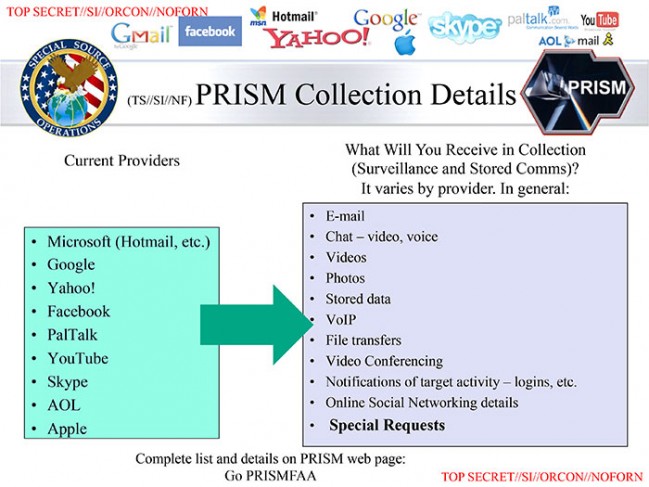So, it is no longer a surprise — our digital lives are tracked, correlated, stored and examined. The NSA (National Security Agency) does it to determine if you are an unsavory type; Google does it to serve you better information and ads; and, a whole host of other companies do it to sell you more things that you probably don’t need and for a price that you can’t afford. This of course raises deep and troubling questions about privacy. With this in mind, some are taking ownership of the issue and seeking to erase themselves from the vast digital Orwellian eye. However, to some being untraceable online is a fashion statement, rather than a victory for privacy.
From the Guardian:
“The chicest thing,” said fashion designer Phoebe Philo recently, “is when you don’t exist on Google. God, I would love to be that person!”
Philo, creative director of Céline, is not that person. As the London Evening Standard put it: “Unfortunately for the famously publicity-shy London designer – Paris born, Harrow-on-the-Hill raised – who has reinvented the way modern women dress, privacy may well continue to be a luxury.” Nobody who is oxymoronically described as “famously publicity-shy” will ever be unGoogleable. And if you’re not unGoogleable then, if Philo is right, you can never be truly chic, even if you were born in Paris. And if you’re not truly chic, then you might as well die – at least if you’re in fashion.
If she truly wanted to disappear herself from Google, Philo could start by changing her superb name to something less diverting. Prize-winning novelist AM Homes is an outlier in this respect. Google “am homes” and you’re in a world of blah US real estate rather than cutting-edge literature. But then Homes has thought a lot about privacy, having written a play about the most famously private person in recent history, JD Salinger, and had him threaten to sue her as a result.
And Homes isn’t the only one to make herself difficult to detect online. UnGoogleable bands are 10 a penny. The New York-based band !!! (known verbally as “chick chick chick” or “bang bang bang” – apparently “Exclamation point, exclamation point, exclamation point” proved too verbose for their meagre fanbase) must drive their business manager nuts. As must the band Merchandise, whose name – one might think – is a nominalist satire of commodification by the music industry. Nice work, Brad, Con, John and Rick.
If Philo renamed herself online as Google Maps or @, she might make herself more chic.
Welcome to anonymity chic – the antidote to an online world of exhibitionism. But let’s not go crazy: anonymity may be chic, but it is no business model. For years XXX Porn Site, my confusingly named alt-folk combo, has remained undiscovered. There are several bands called Girls (at least one of them including, confusingly, dudes) and each one has worried – after a period of chic iconoclasm – that such a putatively cool name means no one can find them online.
But still, maybe we should all embrace anonymity, given this week’s revelations that technology giants cooperated in Prism, a top-secret system at the US National Security Agency that collects emails, documents, photos and other material for secret service agents to review. It has also been a week in which Lindsay Mills, girlfriend of NSA whistleblower Edward Snowden, has posted on her blog (entitled: “Adventures of a world-traveling, pole-dancing super hero” with many photos showing her performing with the Waikiki Acrobatic Troupe) her misery that her fugitive boyfriend has fled to Hong Kong. Only a cynic would suggest that this blog post might help the Waikiki Acrobating Troupe veteran’s career at this – serious face – difficult time. Better the dignity of silent anonymity than using the internet for that.
Furthermore, as social media diminishes us with not just information overload but the 24/7 servitude of liking, friending and status updating, this going under the radar reminds us that we might benefit from withdrawing the labour on which the founders of Facebook, Twitter and Instagram have built their billions. “Today our intense cultivation of a singular self is tied up in the drive to constantly produce and update,” argues Geert Lovink, research professor of interactive media at the Hogeschool van Amsterdam and author of Networks Without a Cause: A Critique of Social Media. “You have to tweet, be on Facebook, answer emails,” says Lovink. “So the time pressure on people to remain present and keep up their presence is a very heavy load that leads to what some call the psychopathology of online.”
Internet evangelists such as Clay Shirky and Charles Leadbeater hoped for something very different from this pathologised reality. In Shirky’s Here Comes Everybody and Leadbeater’s We-Think, both published in 2008, the nascent social media were to echo the anti-authoritarian, democratising tendencies of the 60s counterculture. Both men revelled in the fact that new web-based social tools helped single mothers looking online for social networks and pro-democracy campaigners in Belarus. Neither sufficiently realised that these tools could just as readily be co-opted by The Man. Or, if you prefer, Mark Zuckerberg.
Not that Zuckerberg is the devil in this story. Social media have changed the way we interact with other people in line with what the sociologist Zygmunt Bauman wrote in Liquid Love. For us “liquid moderns”, who have lost faith in the future, cannot commit to relationships and have few kinship ties, Zuckerberg created a new way of belonging, one in which we use our wits to create provisional bonds loose enough to stop suffocation, but tight enough to give a needed sense of security now that the traditional sources of solace (family, career, loving relationships) are less reliable than ever.
Read the entire article here.

